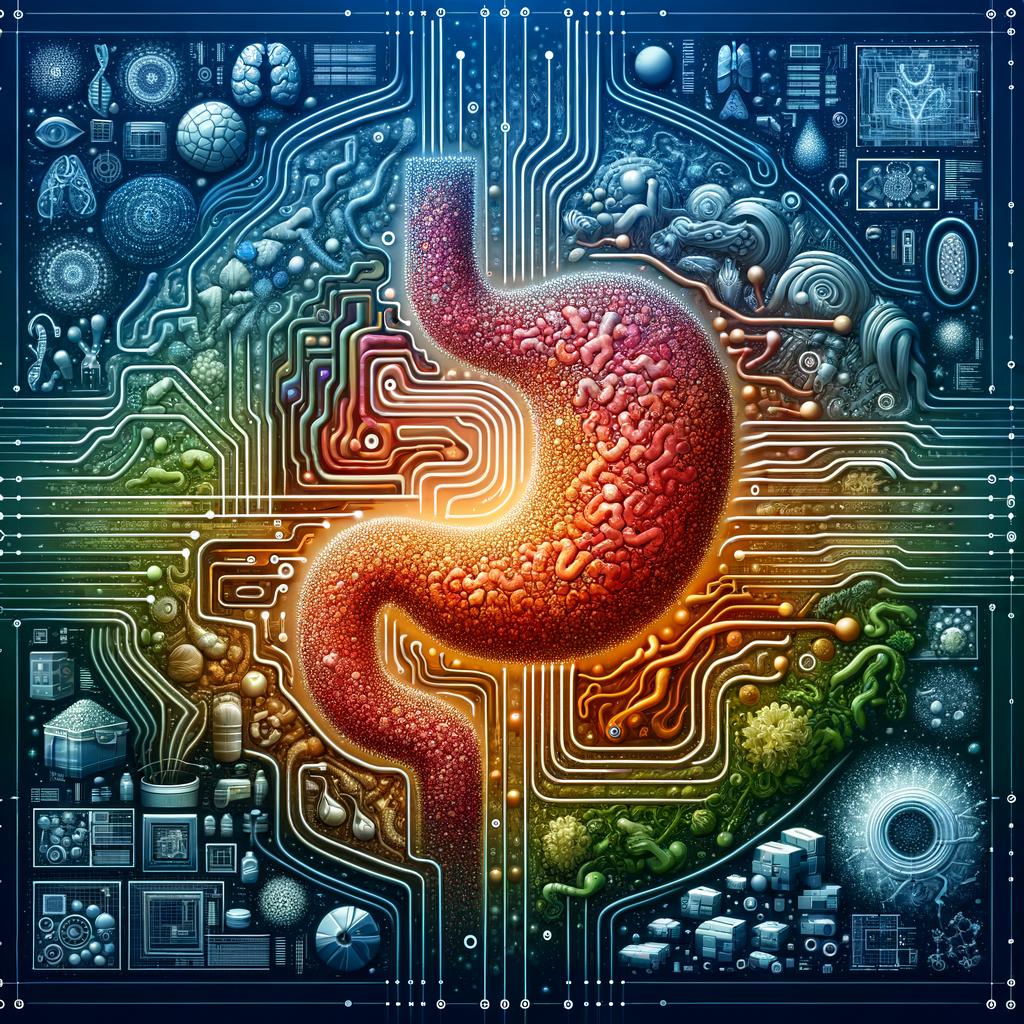
Unveiling the Ingredients of Digestive Enzymes
Have you ever wondered, “What are digestive enzymes made of?” If you have, then this article is here to provide you with all there is to know about it. Simply put, digestive enzymes are a group of proteins that our bodies naturally produce to facilitate digestion. They are meticulously crafted by our bodies through an intricate interplay of genetics and biochemistry. These tiny powerhouses of proteins are essential for breaking down the food we eat into nutrients that the body can absorb. In this article, we will elaborate, giving you specifics on what these enzymes consist of, how they are created, and their significance.
Digestive Enzymes: A Deeper Dive into Their Composition
Digestive enzymes, the custodians of our digestion, are made predominantly of proteins. For those who lack them in their bodies, supplements exist, often extracted from certain fruits, microbes, animals, or made synthetically in laboratories. Having said that, it’s worth noting that there is an expansive list of various enzymes, including amylases, lipases, proteases, each with its unique role and composition.
The Three Musketeers of Digestion: Amylases, Proteases, and Lipases
Amylases, proteases, and lipases are the three main types of digestive enzymes that lie at the very heart of our digestive processes. Amylase aids in breaking down carbohydrates into simple sugars, lipase specializes in fat digestion, and protease tackles proteins. Regardless of their differences, these enzymes, often referred to as the “Three Musketeers of Digestion,” work hand in hand to execute the digestive process efficiently.
The Marvelous Making of Digestive Enzymes
Our bodies are remarkable factories constantly at work creating these peculiar proteins. They’re predominantly produced in the pancreas and small intestines, but also in the salivary glands and stomach. The process of creating these enzymes involves a complex sequence of events from protein coding by genes, through transcription and translation, and finally processing and secretion.
A Journey from Genes to Enzymes
These digestion superheroes don’t just pop out of nowhere, they are manufactured in a multi-step process. It involves initial coding by genes, which subsequently undergo transcription to form an RNA molecule. This RNA acts as a template for protein production in a process called translation. The resulting protein is further processed and eventually secreted as a fully-fledged digestive enzyme.
The Role of Digestive Enzymes: More Than You Might Think!
Digestive enzymes don’t just stop at aiding the breakdown of food into absorbable nutrients. Having enzymes in proper balance plays a significant role in preventing digestive discomfort, boosting overall gut health, enhancing nutrient absorption, and contributing to general wellbeing.
Unseen Protectors of Digestion
While these enzymes silently accomplish their tasks in our bodies, their function extends beyond just breaking down our food. By ensuring smooth digestion, they help reduce bloating, gas, and other gastrointestinal upsets. Furthermore, by boosting nutrient absorption they contribute towards strengthening the immune system and enhancing overall health.
The Solution: Digestive Enzyme Supplements
If our bodies fall short in the production of these enzymes, due to age or certain health conditions, digestive enzyme supplements can come to the rescue. Made through extraction or synthetically created in labs, these supplements can help provide the top-ups our bodies need to maintain proper digestion.
Support in a Capsule: Digestive Enzyme Supplements
Whether derived from pineapples, papayas, or made through technological advancements in labs, these supplements aim to compensate for any deficiency of digestive enzymes in the body. Stepping in to provide the extra support our bodies may need, these capsules can help ensure our digestive machinery is running smoothly.
Aiding the Journey of Our Food: The Encore
So, there you have it — the lowdown on what digestive enzymes are made of, how they are produced, and why they are so essential. These critical component proteins function as indispensable aid, ensuring that the journey your food takes from the plate to the cells is smooth, efficient, and beneficial to your overall health.
Frequently Asked Questions
1. What happens if you lack digestive enzymes? – When your body isn’t producing enough digestive enzymes, the food isn’t properly broken down. This may lead to digestive discomfort, malnutrition, weight loss, and in serious cases, deficiencies of essential nutrients.
2. Are digestive enzymes safe to take? – Most digestive enzymes are generally safe to take. However, it’s always advised to seek very professional advice before starting any supplement regimen.
3. Can digestive enzymes cause side effects? - Like all supplements, digestive enzymes can potentially cause side effects. However, most people tolerate them well. Possible side effects can include upset stomach, diarrhea, or an allergic reaction.
4. Can I get digestive enzymes from food? – Yes, certain foods are excellent sources of natural digestive enzymes. These include pineapples, bananas, mangos, honey, avocados, kefir, sauerkraut, and kimchi.
5. Are all digestive enzymes the same? – No, there are many different types of digestive enzymes, each with a specific job. The main three include amylases, proteases, and lipases which specialize in processing carbohydrates, proteins, and fats, respectively.

